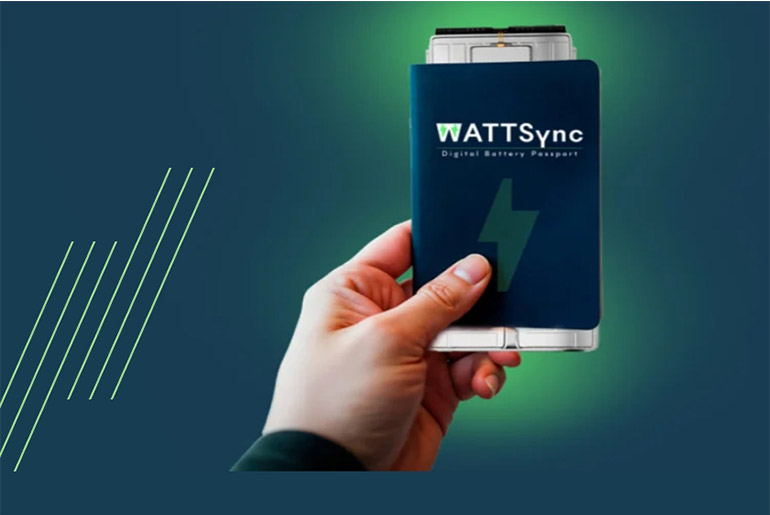Tata Technologies, the global engineering and digital services arm of the Tata Group, has unveiled WattSync, a blockchain-enabled SaaS platform designed to provide end-to-end traceability of EV batteries. The platform, already piloted with Agratas and Jaguar Land Rover (JLR), aligns with upcoming battery passport regulations in the EU, US, China, and India, and aims to help OEMs meet stringent sustainability and compliance requirements.
Driving Compliance with Global Battery Regulations
With EU battery passport legislation set to begin in 2027, WattSync will allow manufacturers to record and track battery data across the full lifecycle—from raw material mining (nickel, cobalt, manganese) to cell manufacturing, pack assembly, in-field usage, recycling, and disposal. Similar regulations will take effect in California by 2026, with China (2028), India (2028), and the US (2028-29) following.
“WattSync is a holistic traceability solution ensuring cradle-to-grave visibility of batteries. It integrates seamlessly with OEMs’ digital backbones, and can be adopted as a full stack or in modular blocks.”
Marc Manns, Vehicle Line Director – Electrical and Electronics, Tata Technologies
Cloud-Based, Blockchain-Enabled Traceability
The platform integrates with OEM systems like PLM, MES, and ERP, fetching static and dynamic data to create a digital thread of the battery’s journey. Built with blockchain, AI, and ML capabilities, WattSync ensures data integrity while enabling predictive analytics for fault prevention. Tata Technologies claims that integration can be completed within 2–4 weeks, offering OEMs a fast-track compliance solution.
AI, ML, and Predictive Value
A standout feature of WattSync is its ability to use AI-driven prognostics to predict and prevent potential battery failures, including thermal runaway and fires—risks that could harm consumer trust and brand reputation. During pilots, JLR used WattSync’s predictive analytics to troubleshoot EV battery faults in real-time, enhancing customer satisfaction.
Meanwhile, Agratas, Tata Group’s battery manufacturing arm, deployed WattSync as an end-to-end data management solution, ensuring transparency across the supply chain.
GDPR-Compliant Data Management
The platform complies with EU GDPR standards, which mandate 93 key parameters for data protection. By ensuring secure data handling, WattSync also opens avenues for OEMs to monetize anonymized insights while protecting customer privacy.
“Glo-cal” Development, Global Impact
WattSync was developed by Tata Technologies teams across the UK, Sweden, India, and China, with significant contributions from engineers in Pune and Bengaluru. The company also engaged its powertrain, connectivity, and cybersecurity divisions to ensure WattSync’s scalability and security.
“Sustainability and legislation are key drivers. WattSync not only ensures compliance but also empowers OEMs to adapt quickly to evolving supply chain dynamics,” Manns added.
Tailored for India’s Market Needs
While global regulations shape the platform, Tata Technologies is also focused on customizing WattSync for India, where affordability is a critical factor. The company plans to fine-tune data sets and cost structures to suit local OEMs while maintaining compliance and transparency.
Future of EV Battery Passports
With governments mandating transparency, WattSync positions Tata Technologies as a pioneer in digital compliance tools for EV batteries. Beyond compliance, its ability to support sustainability goals and enhance safety makes it a strategic enabler for OEMs navigating the clean mobility transition.
As battery passports become a global necessity, WattSync could emerge as the backbone of EV traceability, making Tata Technologies a frontrunner in driving the digitalisation and decarbonisation of mobility.



